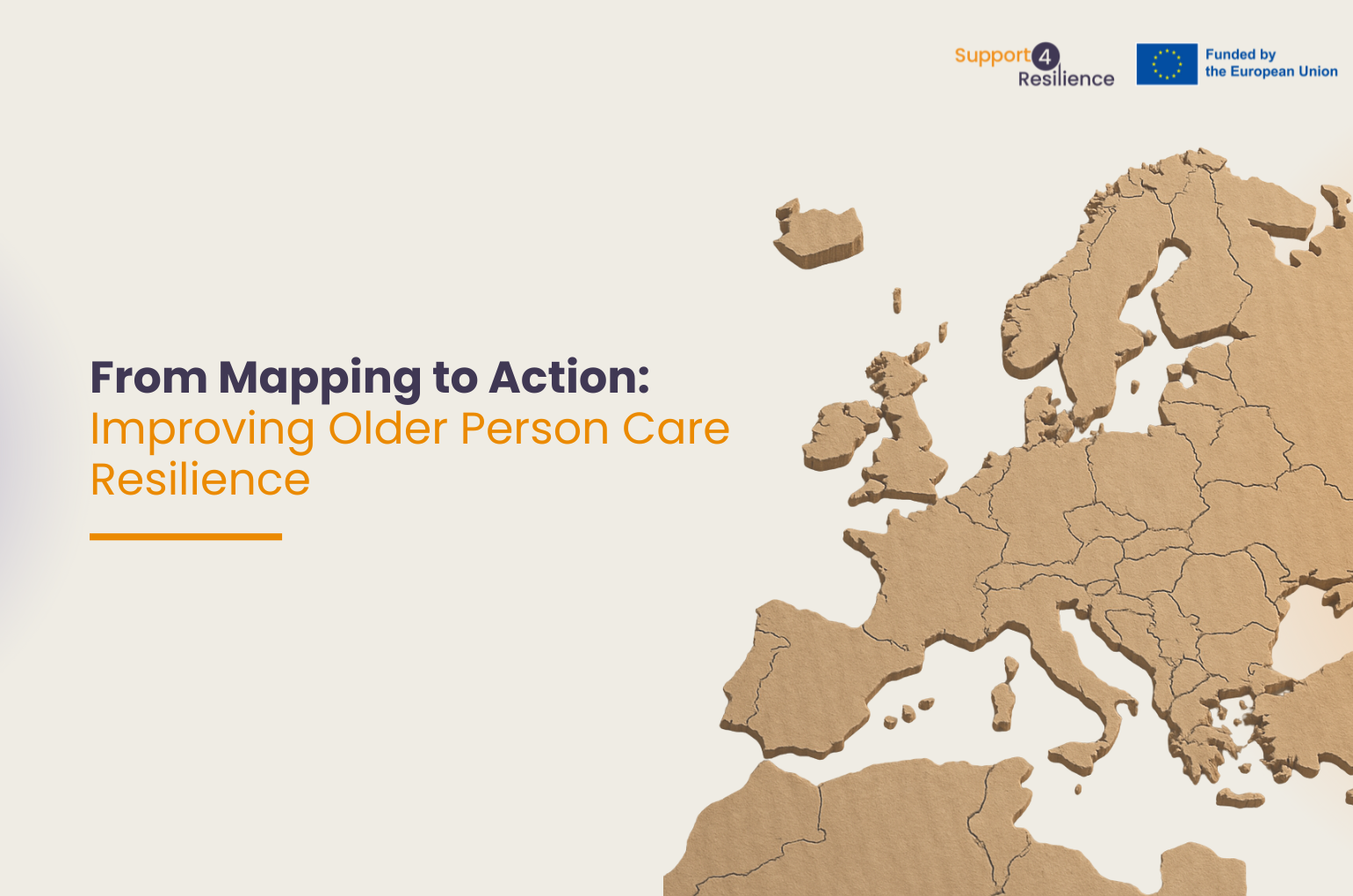Support4Resilience is an EU-funded action research programme that aims to strengthen the resilience of care services for older persons across Norway, Finland, the Netherlands, Spain, Italy, Romania and Australia. It does so by developing organizational interventions that support team leaders in their efforts to improve the wellbeing of their employees as well as the resilience of their organizations. In order to do that successfully, it is of key importance to understand the country specific contexts in which older person care is organized and provided.
The Methodology: A Structured Context Mapping Tool
One of the first steps has therefore been to describe and analyse the healthcare systems of participating countries. We do so at national, regional, and organizational levels using a structured context mapping tool. This mapping exercise provides crucial insights into demographic developments in participating countries, the make-up of the different healthcare systems, the specific challenges faced by older person care organizations in each of these systems, and the policy and organizational strategies currently used to make older persons care more resilient.
Key Findings: Divergent Systems, Common Challenges
Our mapping shows significant differences in older person care systems across countries, from centralized state-run models to decentralized competitive ones. Despite this, they face common challenges: aging populations and increasing demand for complex, high-quality care. To address this, countries aim to recruit more care workers, yet struggle with staff shortages, high turnover, and sick leave. Responses vary: some promote ageing-in-place and reduce long-term care beds, while others expand institutional capacity. All increasingly rely on informal caregivers, and some emphasize technological innovation for more efficient care.
From Data to Tool: The S4R Toolbox
Insights gained during this mapping process directly inform the development of the S4R Toolbox—a practical set of tools designed to support healthcare organizations in improving working conditions, staff well-being, and care quality. The context mapping however not only supports local implementation. Importantly, it also enhances learning across borders, enabling healthcare leaders and policymakers to reflect on and adapt strategies that work in diverse older person care systems.
Listen to the Podcast
To learn more about how mapping healthcare systems contributes to innovation and resilience in elderly care, listen to the full episode via the Support4Resilience podcast.
Written by: Martijn Felder, from Erasmus University Rotterdam

